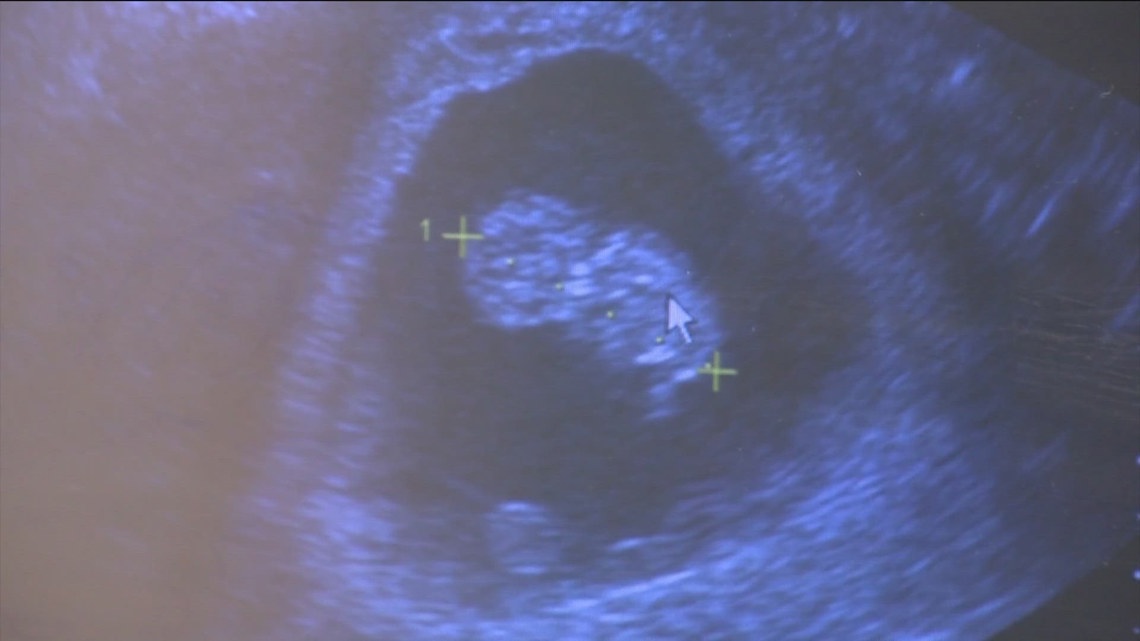
The court ruled against a group of women who have been asking for more clarification on medical exceptions to the abortion ban.
AUSTIN, Texas — The Texas Supreme Court has rejected a challenge to one of the most restrictive abortion bans in the U.S.
Friday, the court ruled against a group of women who have been challenging the law. They wanted the court to give more clarity on when women experiencing potentially deadly pregnancy complications can get an abortion.
“I love Texas, but it’s really hard to love Texas right now,” said Dr. Austin Dennard, an OBGYN in Texas and a plaintiff. “I love my patients so much and I still wake up every morning worried about them, and I think about all the things I could potentially do to keep them safe, but there is no clarity in the laws.”
In their unanimous ruling, state supreme court justices wrote that Texas law already permits a life-saving abortion if the doctor makes the decision under a standard of “reasonable medical judgment.” But the plaintiffs in the case were arguing for the law to be changed so doctors could act under a “good faith belief,” which means they could intervene if there were serious fetal conditions.
Currently, Texas law allows a life-saving abortion if a woman is at risk of death or serious physical impairment. The law does not allow protection for women with fatal fetal conditions.
“That seems of something that’s so intimate that it should be worthy of constitutional protection,” said Steve Bresnen, a Texas attorney.
Texas Medical Board Abortion Exception Rule
In addition to the lawsuit the Texas Supreme Court provided a ruling, Steve and Amy Bresnen, two Texas attorneys, are petitioning the Texas Medical Board to clarify when doctors are allowed to perform abortions in the state.
Under current Texas law, doctors can risk getting their license revoked, a $100,000 fine and up to 99 years in prison for providing an abortion.
“When 99 years is what you could lose, you really want to have something in writing and a rule to point to,” Steve Bresnen said.
Texas law says the life-threatening condition of a woman doesn’t have to be imminent for a doctor to provide an abortion. But in the Texas Medical Board’s rule, there is no mention of the immediacy of the condition, which the Bresnens feel does not put doctors in a good place.
“It looks like the Texas Medical Board has its work cut out for it,” Amy Bresnen said.
The Texas Medical Board is set to meet at the end of June, and they could propose another new rule. If proposed, it would then have to go through another period of public comment.
In a statement released Friday, Texas Attorney General Ken Paxton celebrated the decision.
“I will continue to defend the laws enacted by the Legislature and uphold the values of the people of Texas by doing everything in my power to protect mothers and babies,” Paxton said.
Attorneys with the Center for Reproductive Rights involved in the Texas Supreme Court case say they’re looking into whether they can take any other action based on their client’s claims. As for the plaintiffs, they plan to keep fighting and sharing their stories to spread awareness about what they call a “malicious” law.
“If you want to grow your family, if you want to have children, you should definitely get out of Texas,” said Kaitlyn Kash, a plaintiff in the State v. Zurawski case.
Original News Source
Click here for Superior HOA Management
